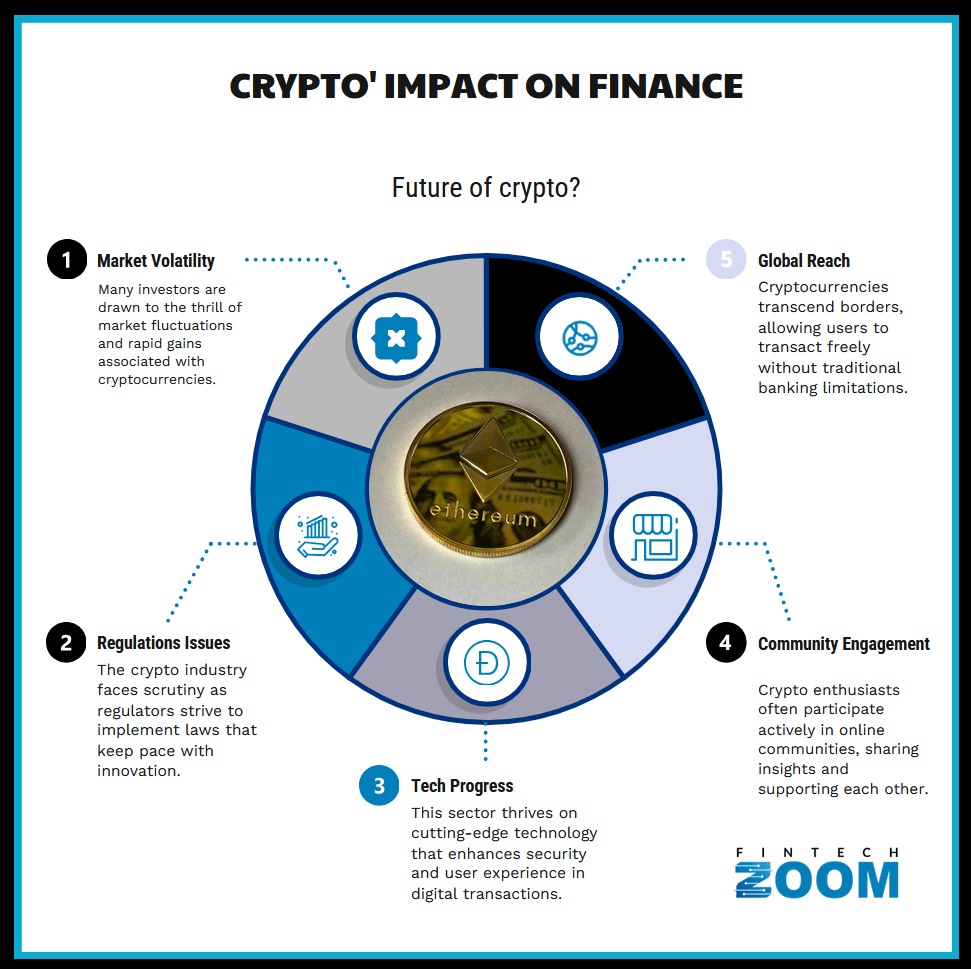Since Bitcoin’s launch in 2009, cryptocurrencies have dramatically reshaped the financial landscape. The volatile nature of digital currencies, along with several industry controversies – from the Bitfinex Exchange Hack to the FTX collapse – significantly tainted public perception and dragged down their mainstream adoption. As the NFT bubble burst and star currencies like Bitcoin plummeted, media coverage was quick to paint a grim picture of the crypto space in a narrative that would be echoed by many tech observers.
Recently, scandal struck again as an HBO documentary promised to reveal the identity of Satoshi Nakamoto, the mysterious creator of BitcoinBTC, fueling yet more speculation among tech circles. Meanwhile, the SEC continues its assault on crypto. Still, industry analysts and crypto enthusiasts are confident that cryptocurrencies will bounce back. And some sectors are already at the forefront of an ongoing crypto movement. So, here’s a look at three industries driving the adoption of cryptocurrencies forward.

Travel & Hospitality
The tourism industry pioneered cryptocurrencies for global financial transactions. Latvian carrier airBaltic began accepting crypto payments ten years ago, with LOT Polish Airlines joining the trend a year later. While still niche, this trend has only grown stronger ever since. Blockchain-based travel booking platforms like Alternative Airlines and Travala now allow travelers to make Bitcoin, Dash, or Ethereum payments. In 2022, travel giant Expedia partnered with Travala to enable users to book from a selection of 700,000 hotels through one of thirty cryptocurrencies.
Crypto-friendly destinations like Dubai and Malta have also ushered a new era of crypto tourism. This emerging travel niche centers around educational seminars, conferences, and networking events on digital currencies, mixed with leisure activities like blockchain cruises. Catering to investors and cryptocurrency holders, this blossoming market acts as a business incubator and a creative initiative for mass adoption. The hospitality industry followed beyond mere crypto hubs, with groups like The Pavilion Hotels & Resorts facilitating crypto payments across its facilities by forming trailblazing partnerships, such as with the Coindirect platform.
Retail
The retail industry has long embraced technology to reduce transaction costs and increase profitability. Making cross-border transactions as fast and seamless as ever, blockchain-based payment solutions have been welcomed with open arms by major players in the retail field. While stablecoins have led the charge for risk-avert merchants willing to bypass the volatility of most crypto assets, currencies like Bitcoin have made their way into popular marketplaces like Overstock.
Likewise, tech-savvy retailers have been at the vanguard of adopting new technologies to enhance customer experience (CX). Companies like Adidas and Newegg have incorporated crypto payment options to allow crypto-minded shoppers to spend their digital assets in stores and e-commerce sites. Other platforms have introduced blockchain-based loyalty programs and cryptocurrency rewards, such as the free app Lolli. Meanwhile, blockchain technology has spawned new opportunities to engage audiences on social platforms like Roblox.
Gaming
An early crypto adopter, Microsoft was one of the first major gaming companies to allow players to use crypto to purchase games on the Xbox console. Similarly, Twitch raised the bar for crypto awareness by enabling viewers to donate Bitcoin to support their favorite content creators. Many games have subsequently jumped on the crypto bandwagon, from the medieval strategy MMORTS Imperia Online to the undisputed champion of casual gaming on mobile, Candy Crush. Merging non-fungible tokens and cryptocurrencies, play-to-earn games like Axie Infinity and Splinterlands are still going strong. Meanwhile, rumors continue to circulate within the online gaming community about the possible integration of cryptocurrencies in GTA 6, perhaps the most-anticipated entry in the history of the medium.
While many AAA publishers are still hesitant to venture into the crypto space, the iGaming sector has been pushing crypto adoption much more readily these past years. Atari launched a casino in the Ethereum-based Decentraland metaverse as early as 2021, convincing many platforms to expand their payment options to include cryptocurrencies such as Tether or Litecoin. Incidentally, Bitcoin casinos are now commonplace in the iGaming world. Crypto enthusiasts can browse specialized websites to catch up with the latest trendsetters. As the choice keeps growing, industry experts break down the pros and cons of the best Bitcoin platforms. They also detail how to claim and withdraw the most profitable crypto promotions, from no-deposit bonuses to free spins.
Admittedly, mass crypto adoption is still a long shot. Roadblocks range from public mistrust to regulatory challenges. Despite these drawbacks, a growing number of businesses are beginning to acknowledge the transformative potential of these digital assets.





